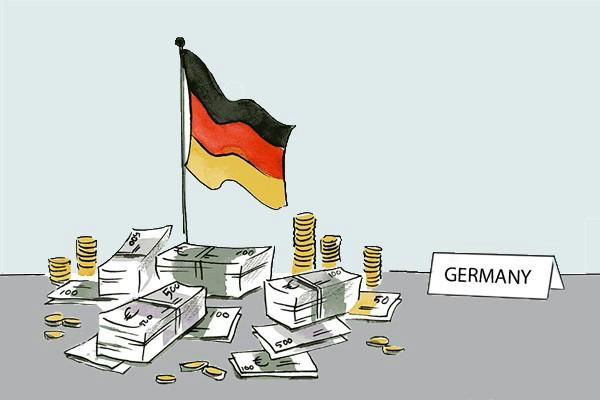Cross-Atlantic Effects: US Tariffs Stalling Germany’s Economy?

Germany is dependent on foreign demand, as it is a major exporter of automobiles, machinery, and other industrial goods. As a result of the trade barriers, Germany’s exports to the US in Q1 fell sharply. Typically sectors with high value, automobiles and pharmaceuticals, they’re currently facing large cost disadvantages in US markets. This in turn contributes to a fall in demand for these German products, as Americans begin to favour cheaper local alternatives. In Germany, this had led to a severe industrial production hit, particularly in manufacturing hubs like Bavaria. Furthermore, this lack of manufacturing has increased the national unemployment rate. Job cuts in export-heavy industries has caused the unemployment to skyrocket to 3 million, the highest in over a decade. The volatility of exports has also diminished business confidence, with large, established firms scaling back their investment plans due to a risk of a fall in profit margins. Exporting firms are hesitant to expand, which itself can weaken domestic demand in Germany.
This comes with a host of economic challenges for Germany. With its external demand being significantly weakened, Germany’s projected growth in 2025 is expected to be 0%, bringing the economy to a standstill. This further indicates Germany’s vulnerability to trade shocks, with its GDP model being overreliant on a constant foreign surplus. The tariffs hurt German imports as well, with specialised firms that import parts from the US facing rising costs, tightening their margins. Typically a haven for investment and R&D spending, Germany is now subject to firms deferring investment in innovation.
Tariffs have had a distorting effect on the German economy, reducing their global competitiveness and minimizing their competitive advantage. Its open economy remains significantly vulnerable to any imposition of barriers, potentially causing them to rethink their reliance on global powers like the US. Tariffs have triggered job losses and stagnated the economy, and unless conditions ease immediately, Germany might have no choice but to reorient its economy toward domestic demand.
– By Vedant Sriram
Works Cited
https://www.dw.com/en/germany-expects-zero-growth-in-2025-blames-trump-tariffs/a-72338707
https://www.nytimes.com/2025/04/24/business/german-economy-trump-tariffs.html
